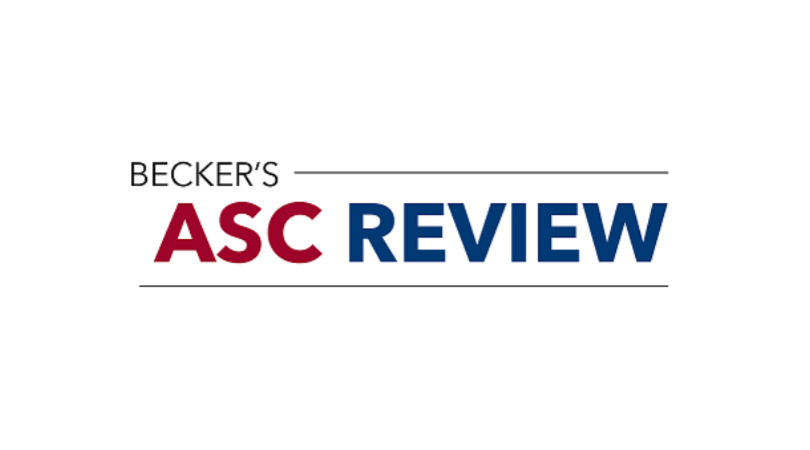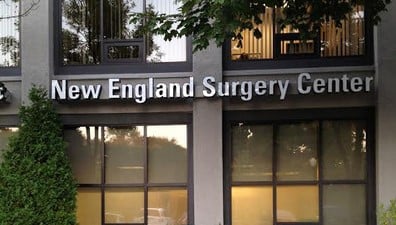Becker's ASC Review interviewed Dan Short to learn more about the processes necessary for meeting CMS' conditions for coverage. These conditions require ASCs to provide patients with written acknowledgement of patient rights, ownership and advance directives prior to the date of service. In order to meet these conditions, ASCs across the country have responded in a number of ways.
Want to stay in the know on the latest ASC tips and topics?
Recent Posts
Looking for Something?
Categories
- ASC (82)
- ambulatory surgery center (82)
- video (36)
- nurse guide (29)
- patient communication (27)
- patient satisfaction (27)
- covid19 (26)
- surgical facility (25)
- business and finance (22)
- technology (22)
- patient engagement (19)
- ambulatory software (18)
- pre-admissions (16)
- Case Study (14)
- ambulatory surgery center software (11)
- outpatient surgery (11)
- culture of safety (10)
- complex cases (8)
- or volume (8)
- administrator (7)
- employee satisfaction (7)
- infection control (7)
- outpatient surgery software (7)
- risk management (7)
- solutions (7)
- cardiac (6)
- disinfect (6)
- patient tracking (6)
- postop (6)
- total joint (6)
- document management (5)
- implementation (5)
- patient survey (5)
- surgery scheduling (5)
- ASC Everyday Heroes (4)
- hiring (4)
- job security (4)
- payment plan (4)
- preop (4)
- scheduling (4)
- security (4)
- surgery center (4)
- women in healthcare (4)
- ASC booking (3)
- CMS (3)
- CMS requirements (3)
- Derek's Corner (3)
- best practices (3)
- data integration (3)
- everyday heroes (3)
- outpatient surgery center (3)
- patient registration (3)
- preop nurse (3)
- revenue (3)
- senior patients (3)
- specialty procedures (3)
- texting (3)
- vendor management (3)
- ASC quality reporting (2)
- Accreditation (2)
- GI (2)
- ambulatory surgery center surveys (2)
- burnout (2)
- cancellations (2)
- clinical (2)
- cost (2)
- digital chart storage (2)
- healthcare consumerism (2)
- hygiene (2)
- new hire (2)
- patient charts (2)
- patient risk (2)
- payments (2)
- screening (2)
- sleep study (2)
- time management (2)
- 2021 (1)
- 4 tips (1)
- Accredited (1)
- Billing (1)
- ERAS (1)
- One Mnet Health (1)
- SaaS (1)
- capnography (1)
- certfication (1)
- colonoscopy (1)
- conscious sedation (1)
- corona virus (1)
- customer spotlight (1)
- diagnosis (1)
- elderly patients (1)
- endo (1)
- intubation (1)
- laryngoscopy (1)
- marketing (1)
- obesity (1)
- online pre-admissions (1)
- outsourcing (1)
- patient (1)
- patient finance (1)
- patient satifaction (1)
- payment (1)
- personalized care (1)
- physician offices (1)
- pricing (1)
- recovery (1)
- sleep apnea (1)
- staff burden (1)
- staffing shortage (1)
- surgery center management software (1)
- top 12 (1)
- vendor communication (1)
- vendors (1)
When opening an ambulatory surgery center, there's lots of planning involved and many expenditures are required. To get your business started on the right foot, here are a few critical (but common) mistakes that can mean failure for your ASC:
New England Surgery Center recently shared their success story using One Medical Passport to run smarter and save time using our pre-admission solution.
We all know outpatient care at an ambulatory surgery center (ASC) is better. We might be partial though since we live, eat and breath it everyday. Recently, healthcare leaders were surveyed on industry trends and their points back up our feelings on ASCs being the best.
Prior to deploying One Medical Passport, Jefferson Surgery Center relied on nursing staff to phone patients in advance of a procedure to gather their preoperative medical history. Each of these calls took an average of one hour per patient because many patients were often unprepared and lacked the necessary information when receiving the call. Repeated calls to patients were often necessary as it was common for them to be unavailable. This communication process was inefficient, time-consuming and costly.
In Part 1 of this 4-part series, I talked about what Ejection Fraction (EF) is. In Part 2, I talked about the classifications of normal and abnormal EF. In this 3rd blog article in the series, I’ll talk about Congestive Heart Failure - commonly known as just CHF.
What makes or breaks the successful adoption of new technology at your surgery center? ASCs are consistently being pushed to move in the direction of streamlined, paperless workflows, and Administrators have never been more integral to the on-boarding process. In this post, we'll review the top 3 reasons that ASCs fail at technology adoption and what can be done to prevent embarking upon a potentially costly project that returns very little ROI.
Over the 20 years that I have run One Medical Passport, probably the most frequent question that I get asked from ambulatory surgery centers that are considering an online pre-admissions system is: “What percentage of my patients can I expect to use the system?”
Ambulatory Surgery Centers often underestimate the technology needs of their senior patients.
Though the generation of 55 and older has witnessed and embraced the most dramatic changes in technology more than any prior generation, their online use and needs are often underestimated. In medicine, especially, ASC administrators often avoid engaging this demographic with online tools on the assumption they will be unwilling or unable.
Ambulatory Surgery Centers are beginning to realize they have a simple and affordable way to better engage their patients, connect their staff and physicians, dramatically improve their efficiency and reduce wasted time and cost. And, that most of their patients and staff are probably already using it. Text messaging is the obvious solution for facilities looking for an easy and accessible tool to improve communication and streamline workflow. The consumer convenience and benefits are obvious, but as compelling are the gains to a facility’s efficiency, staff satisfaction, and bottom line.







.jpg)



